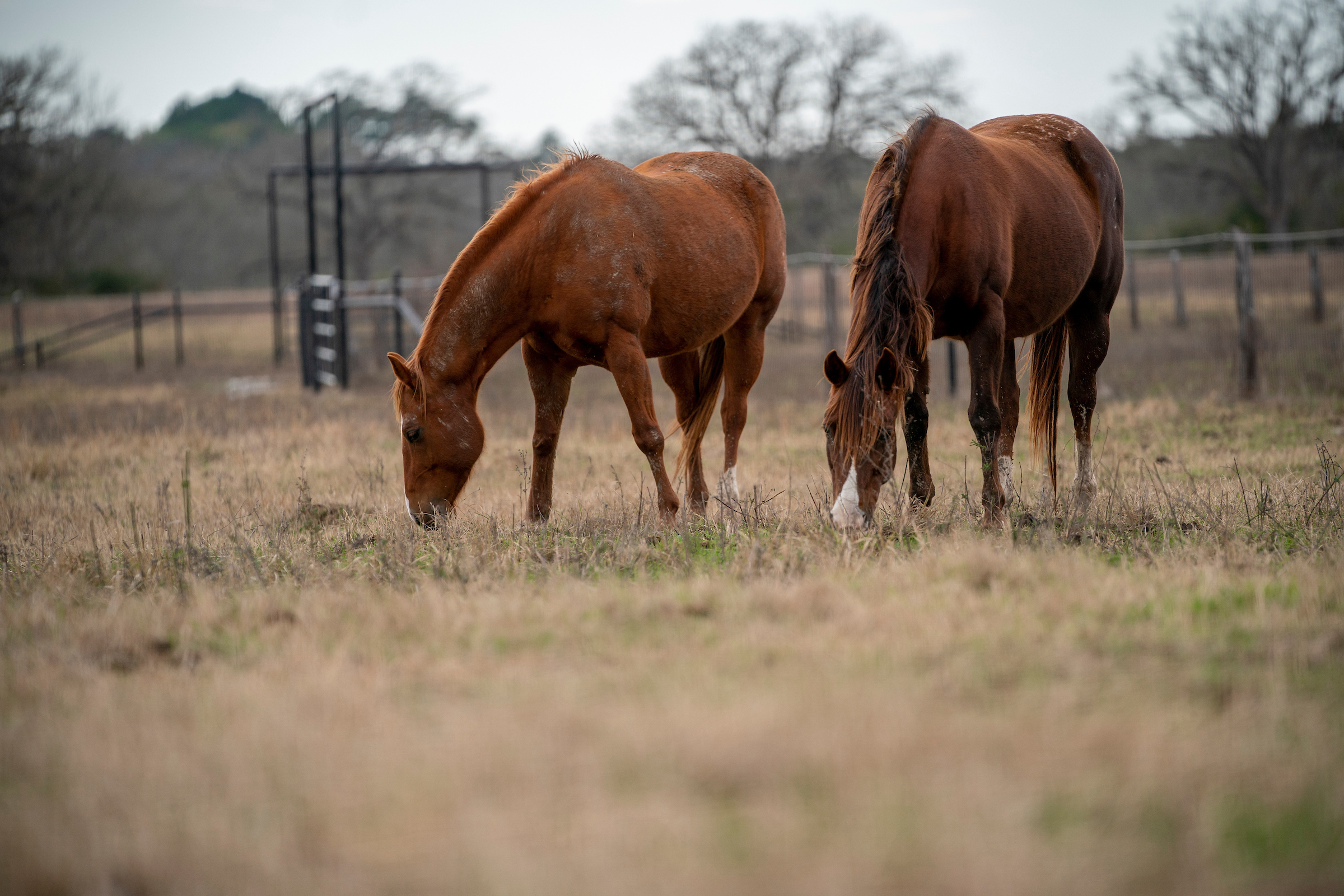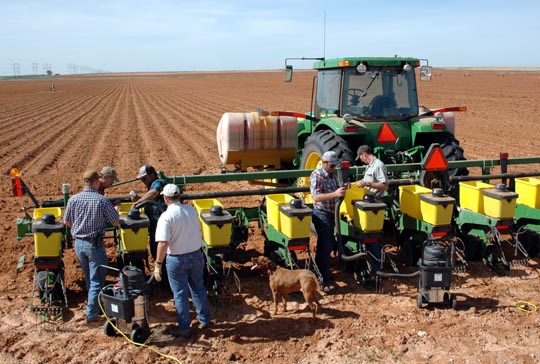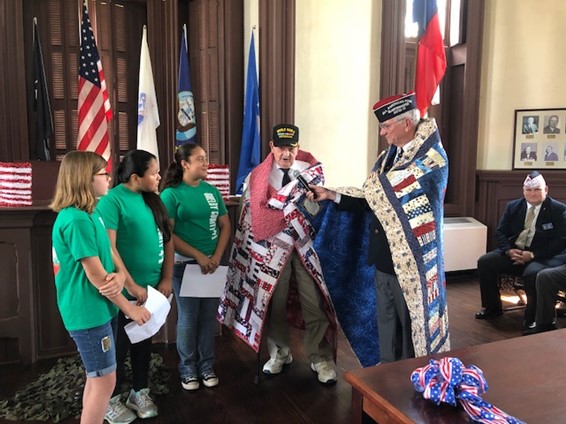Military deployments highlight importance of plants, lead Master Sergeant to college
Writer: Kathleen Phillips, 979-845-2872, [email protected]
COLLEGE STATION — From the air, while traveling to various deployments in her more than 30-year career, U.S. Army Master Sgt. Sherrie Yeates realized a correlation between the look of the land and the state of its people.
“Over the Midwestern U.S., you see pastures with livestock, shade trees and ponds. You see rolling fields of corn, wheat, sorghum and soybeans, all intersected by long curving rivers,” she said. “It’s easy to see that we in the USA truly live in a land of plenty.
“When I flew into Iraq and Afghanistan, however, I looked down and saw nothing – just vast expanses of cracked, unplowed dirt dotted with small mud buildings. On the ground, I observed huge areas littered with war-torn, broken irrigation systems and learned that the area previously produced rich, fertile crops,” Yeates recalled. “I wondered aloud about the people there, ‘What do they eat?’”

Something was missing in areas that lacked healthy agriculture, and if she was going to do anything about it, Yeates realized, she lacked something as well — a college degree.
Though she considers herself a lifelong learner, Yeates’ first priority and loyalty to the military meant she could only find time to take an occasional college-level course, but she was never in an area long enough to complete a degree.
On Dec. 16, however, the now-retired Yeates will walk the stage at Texas A&M University to pick up a bachelor’s of science in horticulture.
Yeates said her parents first steered her toward a nursing career, which she tried briefly after finishing high school.
“But I had always wanted to go into the military,” she said. “As a young girl, I even made scrapbooks about different women in the military.”
So in 1979 Yeates left nursing behind and enlisted in the U.S. Army, thinking it would be a good way to learn a trade — since she did not have a college degree — and the military would provide security in her later years.
“I stayed in the military because I loved it,” she said. “I never thought I would be a person who enjoyed a desk job per se or the routine of going to an office every day and doing the same thing. The military afforded me the ability to do something different. It gave me avenues to explore, to advance, to go in different directions.”
Along the way, Yeates collected credits from at least eight colleges.
“I would take a course here and there,” she said. “In the military, although it’s very supportive of education, sometimes your schedule just doesn’t permit taking classes. So when I retired, I wanted to finish what I’d started.”
Initially, Yeates thought she would fashion all the courses she’d taken into a degree in interior design. But her personal philosophy on the need to support community efforts led her to change her degree path.
“That’s what brought me to Texas A&M. It’s a very community service-based institution and that supported my philosophy,” she said. “As I get into my older years, I wanted to find a path to give back to the community. So I started looking at what degrees were offered that I was also interested in and would be fun. If you’re going to go to school at my age, you might as well do something you enjoy.”
Horticulture provided that outlet because “I like plants and growing things, and this is something I can take with me wherever I am.”
As a senior noncommissioned officer in the military, Yeates’ service earned the Bronze Star and the Combat Action Badge in 2004 during Operation Iraqi Freedom. She accumulated five Meritorious Service Awards, including her years deployed to Afghanistan for Operation Enduring Freedom.
Still, she was intimidated by the idea of finishing her bachelor’s at a large university, when so much of her other coursework had been done at smaller institutions and community colleges.
“I dipped my toe into Texas A&M first in Bill McKinley’s floral design class,” she said. “And I had success there. Then I followed up with the ever-traumatic Chemistry 101 the second semester. After that, I became a full-time student so I could finish.
“I never felt like an outsider here, which was something I was afraid of since I was a nontraditional student — that’s the kind word for old,” Yeates laughed.
Her presence as a nontraditional student served another purpose in classes, according to at least one of her professors.
“The neat thing about nontraditional students is that they do not have many of the same reservations about speaking up in class as their peers,” said Dr. Charlie Hall, professor and holder of the Ellison Chair in Floriculture. “Sherrie was no exception. I could always depend on her to start the classroom discussion regarding whatever topic I was addressing. That would break the ice, so to speak, and then other students would join in.
“She was so enthusiastic at times that my biggest challenge was pulling back the reins a little. She always had a good sense of humor as well, which made it a lot of fun to have her in class,” he added.
Yeates plans to complete a Master Gardeners course in order to volunteer for community-related garden projects. She said the horticulture degree provides an excellent foundation, and she will add more applied knowledge through the Master Gardener study.
“I need more hands-on, fingers in the dirt,” she said. “My focus has been the academics.”
Overall, Yeates said, it was a socio-horticulture course taught by Hall that gave her some direction on how she’ll use her degree in the future.
“The course teaches the framework of how plants and people interact, the impact of plants on people,” she said. “That course changed my path and helped forge my philosophy. Up to that point in time, I thought plants were nice, but that was all. I had no idea that plants have healed people socially, psychologically and physically. People can sometimes just see pictures of plants and be impacted. That course should be required of anybody who has anything to do with growing anything. It’s really that important.”
With her new-found interest in therapeutic horticulture, Yeates hopes to become involved in residential facilities where people are inbound with little opportunities for the outdoors and perhaps few people who visit.
“If it’s something as simple as bringing the plant or growing from seeds or having a conversation about their garden — making that connection with them is what I envision,” she said.
With her military retirement, Yeates noted, she is able to volunteer for others now rather than seek employment.
“I do think it’s important that as individuals we continue to grow, learn and interact with others,” she said. “I really like the idea of reaching out with plants to people who have limitations.”
Now that she has finished what she started, Yeates said, there’s a message to those of any age who want to complete lifelong goals.
“The advice I would offer to students is that there is nothing that you can’t accomplish at Texas A&M,” she said. “I truly believe that the opportunities are here.”





